What will the global economic implications be if Congress does not raise the nation's $14.3 trillion debt limit? Also, Bachmann launched her presidential campaign. Plus, SCOTUS' ruling on the sale of violent video games to children. Joining Pete Williams: David Wessel of The Wall Street Journal; Major Garrett of National Journal; Jeff Zeleny of The New York Times; and Joan Biskupic of USA Today
Full Episode: July 1, 2011
Nov. 03, 2014 AT 4:43 p.m. EST
TRANSCRIPT
Notice: Transcripts are machine and human generated and lightly edited for accuracy. They may contain errors.
MR. WILLIAMS
: A schoolyard brawl over the federal debt, Tea Party power launches a 2012 candidate, and game over at the Supreme Court. I’m Pete Williams in for Gwen Ifill, tonight on “Washington Week.”
Time is running out to get a deal on the debt and deficit here at home.
PRESIDENT BARACK OBAMA
: By August 2
nd
, we run out of tools to make sure that all our bills are paid. So that is a hard deadline. At a certain point, they need to do their job.
MR. WILLIAMS
: But Republicans are pushing back hard.
SEN. JOHN CORNYN (R-TX)
: Instead of going to Philadelphia tonight and raising money, why didn't he call Senator McConnell, Speaker Boehner, Minority Leader Pelosi and Majority Leader Reid into his office and sit down and do his job, just do his job.
MR. WILLIAMS
: A game of chicken or a principled standoff, and where will it lead? While in Greece protests over drastic measures to keep that country solvent, is there a ripple effect for the global economy?
The Republicans have a new candidate for president.
REP. MICHELE BACHMANN (R-MN)
: Together we can make a better America if we stick together. Together we can bring the promise of the future.
MR. WILLIAMS
: Can the Tea Party favorite run toe-to-toe with the other contenders?
And the Roberts court concludes its term with a major First Amendment ruling. We wrap the session, the first for the court’s newest justice.
Covering the week: Major Garrett of “National Journal,” David Wessel of the “Wall Street Journal,” Jeff Zeleny of the “New York Times,” and Joan Biskupic of “USA Today.”
ANNOUNCER
: Award-winning reporting and analysis, covering history as it happens, from our nation’s capital this is “Washington Week” with Gwen Ifill, produced in association with “National Journal.”
(Station announcements.)
ANNOUNCER
: Here again, from Washington substituting for Gwen Ifill, Pete Williams of NBC News.
MR. WILLIAMS
: Good evening. You know it’s serious when Congress forgoes one of its most cherished traditions, leaving town around a holiday. Senate Majority Leader Harry Reid delivered the solemn news to his colleagues that they’ll have to cancel their post 4
th
of July plans and come back to Washington next week to work on trying to find some way to raise the amount of the federal debt. That decision came after the president scolded Congress for putting off the tough decisions.
PRES. OBAMA
: Malia and Sasha generally finish their homework a day ahead of time. Malia’s 13. Sasha’s 10. It is impressive. They don’t wait until the night before. They’re not pulling all-nighters. (Laughter.) They’re 13 and 10. You know, Congress can do the same thing. If you know you’ve got to do something, just do it.
MR. WILLIAMS
: But Republicans in Congress did not sound very contrite.
SEN. CORNYN
: He should be ashamed. I respect the office of the president of the United States, but I think the President has diminished that office and himself by giving the kind of campaign speeches that he gave yesterday.
SEN. KELLY AYOTTE (R-NH)
: Mr. President, where is your plan that’s going to reduce spending, that’s going to have us live within our means?
MR. WILLIAMS
: So, Major, did the president’s tough talk really help things along?
MR. GARRETT
: There’s a short answer to that, Pete -- no. (Laughter.) And it’s very simple to understand why the president did what he did. He wasn’t attempting to bring the sides together. He was attempting to move the needle. By that I mean the needle of public opinion. The president knows, in the internal conversations and negotiations, he’s moved a great distance toward Republicans. Remember, he didn’t even want the debt increase matter tied directly to deficit reduction. He lost that argument weeks and weeks ago.
Now there’s about $2 trillion of spending cuts on the table that the administration has at least in theory agreed to over the next 10 years. That’s an enormous concession. There’s about $400 billion in tax revenues on the table that Republicans will not accept. And when they told the president not only will we not accept that, we won’t talk about that any longer, the president felt the need to change the dynamic, to sort of rattle their cage a little bit and see if he could move the public move toward the White House position that he’s dealing with an intransigent Republican majority, at least in the House, and a significant enough Republican minority in the Senate to block anything from happening.
And Republicans, of course, responded in kind. “You’re insulting us, Mr. President.” Sort of the school yard equivalency “you throw like a girl.” (Laughter.) Well, Republicans don’t like to hear that. And it is worth pointing out that when these negotiations with Vice President Biden started, that was designed so Congress would not act independently, that Republicans in the House wouldn’t draft their own proposals, which the White House knew they could never accept. So when the president says Congress isn’t doing its job, one of the reasons is the president invited them into these negotiations in the first part. So it’s disingenuous at that level if you go back through all the history of this, but for right now, as we approach this deadline, the White House wants to try to move the public opinion more in its direction.
MR. WILLIAMS
: But how dire is it? I mean, is there a clear path here towards some kind of an agreement?
MR. GARRETT
: If there is, I don’t see it. I don’t see it at all. I see both sides – and I wrote in “National Journal Daily” on Monday that both sides were digging in and the divisions were getting more pronounced, not less pronounced. Little did I know how exactly that was going to play out this week, but we couldn’t have greater distance put between these two sides more rapidly than we saw this week.
MR. WILLIAMS
: Very briefly, did the president succeed in, as you say, moving the needle?
MR. GARRETT
: We’ll find out by midweek next week, but I don’t think he’s persuaded any Republican. And I believe he’s made the deal more difficult, not easier.
MR. WILLIAMS
: So David, if there is no agreement, what are the stakes here? Help us understand what will happen.
MR. WESSEL
: Well, the federal government takes in less money that it spends every day. On August 3
rd
, it will take in about $12 billion and it will – is committed to spend $32 billion. It can’t do that unless it can borrow the difference. I agree with Major that it looks – things look pretty bleak now. I find it very hard to believe that they’re actually going to not raise the debt ceiling, even if it’s just a temporary one.
But there is a bit of a problem here that the leadership and the Republican leadership saying two things, I think, at the same time. One is they say, we’re going to lift the debt ceiling. America pays its debts. And the second thing they’re saying is we don’t really believe the administration. We think this is a – Speaker Boehner said, an artificial date.
MR. WILLIAMS
: This date of August 2
nd
.
MR. WESSEL
: Right.
MR. WILLIAMS
: Is it? What is that date?
MR. WESSEL
: Well, look, here’s – because the government has to borrow to pay its bills, if it can’t borrow, it’ll have some money coming in. It can pay some bills. Everybody seems to agree they should pay the interest on the debt, but they won’t have enough money to pay everything else. So the Treasury would have to decide: do we send Social Security checks? Do we send paychecks? Do we give tax returns? Do we send farm subsidies? Do we pay the light bill or do we pay the gas bill? And they’ve never had to do this before because every time in the past has come down to the wire and they always raise it.
The Republicans have suggested, or some of them, that’s not so hard. And the administration has said, it is hard, it would be a disaster. And in fact, a lot of former Republican Treasury officials and budget officials are pretty close to the administration on this one.
MS. BISKUPIC
: Well, David, how dire is this? We just saw the footage from what’s happening in Greece. Are we headed toward being another Greece? This all could have so many international repercussions?
MR. WESSEL
: Right. I think it would be a big deal if the U.S. government couldn’t pay its debts, but I don’t think that’s where we’re going to end up. We’re not Greece. Greece is a small economy. Greece is way, way deeper in hock than we are. People have lots of options where to put money and Greece is low on their list because they think there’s going to be a default.
I think where the Greece metaphor comes in is that Greece and Portugal and Spain and Ireland have raised questions about whether governments keep their promises. And to the extent that the Congress and the president can’t agree on a long-run fiscal plan, it raises the question of are we ever going to get our act together so that we don’t become Greece.
MR. GARRETT
: And David, is the market yet or do you suspect it will either price this in or panic?
MR. WESSEL
: It’s been amazing how calm the markets have been. And I think there’re two reasons for that. One is they kind of assume that eventually Washington will do what it has to do. And secondly, Greece and Europe have been such a preoccupation that nobody wants to have money there, so they’ve moved money to the U.S. As Europe has done its every six-month band-aid, which buys them another six months, now the markets are beginning to focus on Washington and it’s not looking so good. And you can see Treasury yields start to happen. If the markets really believed that they weren’t going to raise the debt ceiling, you would see a big move and it would not be pretty.
MR. ZELENY
: As these conversations go forward – are we essentially looking at the president and Speaker Boehner here sort of facing off on this, or who are the coalitions of people who can maybe breach this gap if at all?
MR. GARRETT
: Well, the Speaker has said there aren’t the votes in the House to pass any tax increases. The reality is what could pass the House can’t pass the Senate because they can’t get 60 votes there because not enough Democrats will support anything that has no tax increases or tax increases that are so small that are acceptable and get through the House. So until you bridge that gap, those are the two major coalitions, what you can do in the House and in the Senate. And within that House Republican coalition, you have to look at the 87-member freshman class and those inspired by the Tea Party because they saw the narrowly averted government shutdown as a Washington compromise that was less than met the eye. They gave Speaker Boehner and President Obama a chance to cut a deal. They looked at the deal in retrospect and said, you know what? We got burned. We got much less at it than we thought. So this time, they are going to be much more reluctant to follow the president, certainly, and even follow their speaker.
MR. WESSEL
: But isn’t it a – doesn’t it put the Republican leadership in an awkward position? If they can’t deliver their members, that means they’ll need more Democrats to pass it. That gives the Democrats more leverage to move the whole package to the left.
MR. GARRETT
: If you want to do it. And there are many Republicans who want to make this the moment, the moment where everything comes to a head and people blink and decide to do something completely out of character and they want the Democrats to make that move, not them.
MR. WILLIAMS
: And David, speaking – go ahead.
MS. BISKUPIC
: I was wondering about timing because it seemed like the negotiations were going along. There were proposals for trillions in cuts. What – was it that they were almost being too successful and they got some of the policies –
MR. GARRETT
: The Democrats had moved – from the White House and Democrats’ perspective, they’d move such a considerable distance, $2 trillion over 10 years – the president wants $4 trillion. The Republican want $4 trillion. You’re half way there with nothing on the revenue side, zero. And when Republicans said – when the Democrats said, we got $2 trillion, where’s your tax increase? They said zero. Zero a normative number, zero. And Democrats said, well, we can’t live with that. That’s not going to be possible.
MR. WILLIAMS
: And David, speaking of critical players in all of this, in the middle of all this back and forth, the Treasury Secretary Tim Geithner made it quite clear that he’s thinking about leaving. What effect is that having?
MR. WESSEL
: Yes. Yes, I guess it’s not much fun to be the Treasury secretary. (Laughter.) I think it will have some effect. He’s kind of made himself a lame duck and lame ducks usually have less clout in these negotiations. I think that it won’t affect the big things, but at the margin, it makes it harder for them to get a deal, and it undermines his ability to make commitments that Republican and Democrats will be –
MR. GARRETT
: Although it might be perceived as –
MR. WESSEL
: Well, I don’t think – I don’t think it was – I don’t think it was delivered on his part. I think he’s told the president he wants to go. It leaked out. They had no choice but to confirm it. And I think they all generally thought that this thing would be settled by now.
MR. GARRETT
: It might be a sweetener, though.
MR. WILLIAMS
: You know, there was some talk this week about the fact that this deadline doesn’t really count, that if the government wanted to, even without authority from Congress, it could still pay the debts. Is that a factor here or does everybody agree that no one’s going to try to walk that tightrope?
MR. WESSEL
: Well, you certainly hear some members of Congress say that, but I think it’s without content and I don’t think they really believe it. I think that if push comes to shove, they may do a six-week extension of the debt or a six-hour extension of the debt ceiling to avoid finding out just what it would be like not to do it.
MR. WILLIAMS
: And you mentioned earlier how relaxed the markets seem about this. Do they realize they didn’t probably come right down to the last minute the way Congress does everything else? Are they fully prepared for that?
MR. WESSEL
: I don’t think they’re prepared for Congress not to do it. I think as we get closer to the deadline, you’ll see more and more talk from Wall Street about what if they don’t do it and you’ll start to see yields creeping up, and that will put pressure on Congress to stop looking at this as an inside-the-beltway matter and look at it instead as a bigger one.
MR. WILLIAMS
: All right. Thank you both very much. The political week actually began with Michele Bachmann, a third term member of Congress, from Minnesota, going to her hometown, Waterloo, Iowa – no coincidence there – to launch her campaign for president.
REP. BACHMANN
: Government thinks it knows better how to spend our money. Government thinks they know better how to make a better life for us. They think they create jobs. They even think they can make us healthier, but that’s not the case. We have to recapture the founders’ vision of a constitutionally conservative government if we are to secure the promise for the future.
MR. WILLIAMS
: Fueled by Tea Party power, she immediately shot the second place in the latest polls from both Iowa and New Hampshire. Jeff, how did she do that?
MR. ZELENY
: I think the biggest reason is she does not have a former in front of her. The other candidates are former governors, or – so she’s an of-the-moment politician. She has had her rise during this very interesting time in the Republican Party. She became of age or at least of national prominence last year during the midterm elections, was the best fundraiser of any Republican member of the House.
So now – in the early part of the year, she wanted to be in the leadership in Congress. The new Republican majority – Speaker Boehner and others said no way, it’s not your turn for this. So she decided to do the other thing. I’m going to run for president, where there are no rules at all. Anyone can run for president, so that’s what she’s doing. And she is really finding that there is a lot of enthusiasm out there for her, for her message of a smaller government, of fighting ObamaCare, as she calls it, et cetera.
But we’re not yet sure how this is going to end. She gives a good speech. She’s a very good communicator, but there are already experience questions being asked of her. Some governors are saying, hold on just a minute. Former governors or current governors make much better presidents. Exhibit A, at least in the mind of Republicans, is the current president, who was a senator only a short time ago. So she’s the candidate of the summertime. I think we’ll find out if she has the staying power, but without a doubt she is getting crowds and generating tons of enthusiasm.
MR. WILLIAMS
: Now, you mentioned her fundraising. She raised, what, $13.5 million when she ran for the House? Does that translate? Can she use that same kind of experience to raise that kind of money for a presidential campaign? She’ll try and she raised a lot of that through small donations really all across the country, not because of who Michele Bachmann is, but because she became the person who can – who would stop Nancy Pelosi in her tracks. That was her message over and over. So it’ll, perhaps, have the same effect on – she’ll stop President Obama, but it would – people have to begin to see her as the president, not just as a roadblock here.
MR. GARRETT
: Now, when she toyed with the idea of running for running for a House leadership position, it was made very clear to me that if she ran, she’d gotten about 15 votes. She’s not well-regarded among her House Republican colleagues. One of the reasons I was told is that she raised a lot of money, gave almost none to Republicans running for open House seats in the competitive 2010 cycle.
So inside, people who work alongside her, they don’t think a lot of – her chiefs of staff have left. Are these going to be impediments or can she just ignore whatever the Washington experience has been and reach into Iowa, reach in New Hampshire and be a problem for Mitt Romney or Tim Pawlenty?
MR. ZELENY
: She can ignore it for now, but if this becomes – if this looks like it’s going to be a serious proposition, if she looks like – as the nominating contest gets closer as the year goes on, if she is still in this position, look for the Republican establishment to start pushing up against her fairly hard. But for the moment, she is a problem for some candidates, probably not Mitt Romney, though. He is just fine with this whole conversation going on about Michele Bachmann because, one, people aren’t talking about him, and he’s fine with that. He’s trying to stand with the radar. He’s trying to look beyond the Republican primary actually. He was in Pennsylvania this week, the same time that President Obama was. So it’s not a problem for him, but it’s absolutely a problem for other Republicans in the field because she’s taking up the oxygen.
MR. WESSEL
: How would you – go ahead.
MS. BISKUPIC
: In terms of the politics, we know what she’s been like in the House and we know her relationships with other members, both Republican and Democratic, but on the substance – she’s been a member of Congress for a while – has she – is she known for anything in terms of what she’s done legislatively?
MR. ZELENY
: She’s not. Her legislative record is very short, as Major knows. He’s covered the Hill. And she very seldom would come up in a series of debate. But she is a member of the House Intelligence Committee. She is involved in some things, but that’s not what her candidacy is about. Her candidacy is about tapping into the anger out there, but at some point, when it comes time to pick a president, we’ll see how she develops as a candidate. But – so we don’t yet know if she’s the Howard Dean of the Republican Party of if she’s a serious contender. We’ll find out.
MR. WESSEL
: Would you compare her to Sarah Palin. How is she like her and how is she different?
MR. ZELENY
: Well, in one respect, she short of looks like her. So that’s probably the only obvious comparison. Beyond that, she constantly tries to introduce herself as someone who’s different than Sarah Palin. She calls herself scholarly. She has a law degree. She practiced law. So she is different in that respect, but they’re definitely tapping into the same type of frustration levels out there. But she’s doing it more from the inside. She’s, again, an on the moment politician who’s sort of like fighting from the inside. Sarah Palin was more fighting from the outside. But what she has done is taken up that space in this Republican field. Sarah Palin was in Iowa briefly, not nearly as much attention as Michele Bachmann.
MR. WILLIAMS
: One other quick question about fundraising: how are the other candidates doing?
MR. ZELENY
: The other candidates – Mitt Romney is going to raise about $20 million this quarter. It’s not as much as he was hoping, but it’s still much better than everyone else. The others are struggling to raise even almost a quarter as much money.
MR. WILLIAMS
: All right, Jeff, thank you. From the mortal combat of presidential politics to Mortal Kombat, the video game, mentioned this week in a decision from the U.S. Supreme Court, which struck down a California law that would have made it illegal to sell or rent violent video games to minors. This was a victory for a $10 billion video game industry. And Joan, now that this term is over, is this a decidedly pro-business court?
MS. BISKUPIC
: It is, Pete, on the cases that matter. Business doesn’t win across the board, but I’ll just name three big cases that they cared about, and two of them had to do with class action lawsuits and how easy it is to get a grievance to court. We saw the court reject a huge claim against Wal-Mart, the nation largest private employer, and said that if women or minorities want to band together to sue a big company, they have to point to a specific policy of discrimination. You can’t just go – look regionally. It was – so that was important. They also said that in terms of a class action lawsuit against AT&T Mobility over a grievance arising from the fine print in a cell phone contract couldn’t go because the arbitration clause trumped a state law that might have protected someone who complained about their cell phone contract. And finally, you think of generic drugs, which – 70 percent of us now take generic prescriptions over brand name. The court rejected a lawsuit that would have allowed a case against a company over a failure to warn about the drugs. So yes, pro-business, Pete.
MR. WILLIAMS
: I want to ask you about the newest justice of the term, Elena Kagan, her first term. She’s never been a judge before. How did she do?
MS. BISKUPIC
: She did amazingly well. This is a woman who came on the court, the first person in 40 years who had never worn the black robe. She figured out a way to write very strong opinions, whether in dissent or in the majority and also in terms of the give and take among justices that can, as we’ve talked about before on the show, can be a very hot bench with the justices constantly interrupting each other. She figured out a way to ease herself into the conversation and make very effective points, so effective that Chief Justice John Roberts has talked publicly about it and other justices have expressed to me a real admiration for what she’s done in her first term.
MR. WESSEL
: How about Justice Ginsburg? She’s now the leader of the liberals. She has some health problems. How did she do and what do you think her role will be going forward?
MS. BISKUPIC
: Well, I talked to her this week in an interview and she has ascended to a new role there. Now with Justice John Paul Stevens having retired, Ruth Bader Ginsburg is the most senior member of the left. So she now assigns the dissenting opinions when the conservative majority might take over, for example in business cases. And she’s feeling very emboldened in this role. She said that she now thinks much more about what kind of dissenting statement the court might need to file relative to either business or criminal law cases. And she’s feeling actually quite healthy. She survived two serious bouts with cancer in recent years. She’s 78 years old. She’s 78. She said that she stays healthy with a personal trainer, and she hopes she stays for at least four more years.
MR. ZELENY
: If her health is good, what about the health care ruling? (Laughter.)
(Cross talk.)
MR. ZELENY
: You’ve been traveling around the country as this case has been moving its way up. Will that come next term, and what are the early prospects?
MS. BISKUPIC
: I think for sure it’s going to come next term. We’ve already seen just this week the first ruling on the federal health care law mandate that everybody have insurance by 2014. And that court based in Cincinnati ruled for the Obama administration. I think we will probably see a case up at the Court by either late fall, early spring, with a ruling coming right in the middle of the election season.
MR. GARRETT
: Let me be doubly parochial here. First Amendment concerns matter to all of us and I grew up in California -- not knowing it’s a reactionary state, but California did have this law about video games. Does this decision strike new ground on First Amendment protections or does it just establish the ones we always had just in the video game realm?
MS. BISKUPIC
: If it had gone the opposite way, it would have definitely carved out a new exception. That would have been groundbreaking. Basically what Justice Antonin Scalia wrote was, we’re not going to have an exception for violent materials. We’ve never had an exception for violent materials for children. Hey, we’ve read them the Grimm fairytales and they’re pretty violent and we think that’s okay. So that’s what California was arguing for saying, these video games inspire violence, and they can be dangerous to children. And the court rejected that idea, saying studies really don’t show that. And while the court has in the past carved out an exception for sexually explicit materials that you can’t sell so-called “girly magazines” to minors, you can sell them plenty of violent stuff where bodies are torn apart. (Laughter.)
MR. GARRETT
: How confident.
MR. WILLIAMS
: Very briefly, in your conversation with Justice Ginsburg, what did she say it was like to have a court this year with for the first time three women on the bench?
MS. BISKUPIC
: She said it was distinctly different because as you know, Pete, they sit by seniority. So all the women aren’t clumped together. They’re mixed in among with the six other men. So she said, you know, “it looks like we’re here to stay because it looks like we’re really a lot of us up there.” And it is. When you walk in, it doesn’t look so male anymore, does it? Like this kind of – (laughter).
MR. WILLIAMS
: But did she say it changed the way that cases came out, didn’t she think?
MS. BISKUPIC
: No because, you know, well first of all, all three women happen to be on the liberal side and their two predecessors for the two newest justices, Elena Kagan and Sonia Sotomayor, were both liberal. So it wouldn’t have changed – it might have changed in one or two that she mentioned, but not overall.
MR. WILLIAMS
: And when we say she’s 78, she’s only the oldest justice by what, three years? She’s not that much older than the others.
MS. BISK
UPIC: Yes, we got – Antonin Scalia is 75. Anthony Kennedy is about to turn 75 this month. So – and 75 in court years is not really that old.
MR. WILLIAMS : All right. Thank you all very much. That’ll have to do it for tonight. Gwen will be back next week. Be sure to check out our “Washington Week” summer reading list, suggestions from our very learned panelists on what they’re reading. You can find that and more at PBS.org. I’m Pete Williams. Enjoy your 4 th of July holiday weekend. Good night.
FROM THIS EPISODE


Full Episode: March 18, 2011
President Obama and the U.N. warn Moammar Gadhafi to stop military action against rebels or face consequences. Meanwhile, after the earthquake, tsunami and partial nuclear plant meltdown in Japan, the U.S. reviews nuclear safety and a look at the global economic impact of the disaster. Joining Gwen, Tom Gjelten, NPR, Coral Davenport, National Journal, and David Wessel, Wall Street Journal.


Full Episode: April 1, 2011
Encouraging new unemployment figures arrive as Congress debates the budget and tries to avoid a government shutdown. Also, the U.S. hands over some military control in Libya to NATO. Plus, the panel looks at the 2012 GOP hopefuls. Joining Gwen Ifill: Yochi Dreazen, National Journal; Greg Ip, The Economist; Naftali Bendavid, The Wall Street Journal; and Karen Tumulty, The Washington Post.

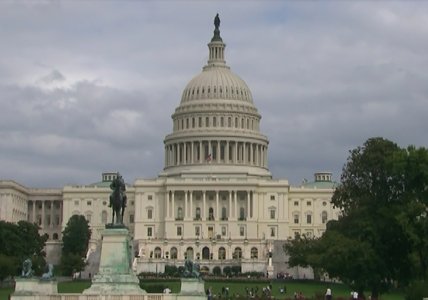
Full Episode: April 8, 2011
With a $39 billion spending cut agreed upon, the possibility of a government shutdown is finally over. The panel discusses why leaders of neither side wanted a shutdown in the first place, and how their constituents may feel. Joining Gwen Ifill: John Dickerson, Slate Magazine/CBS News; Michael Duffy, TIME Magazine; and Jeanne Cummings, Politico.

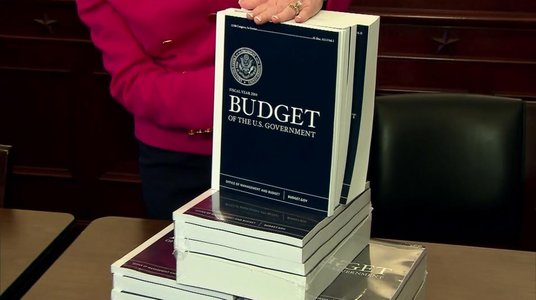
Full Episode: April 15, 2011
While President Obama and Rep. Paul Ryan both unveiled plans to cut $4 trillion from the national debt they continue to argue over how to do it. The GOP and Democrats continued to fight over America's deficit, from taxes to overhauling Medicare and Medicaid. This week: Susan Davis, National Journal; Jeff Zeleny, New York Times; Janet Hook, Wall Street Journal; John Harwood, CNBC/NY Times.

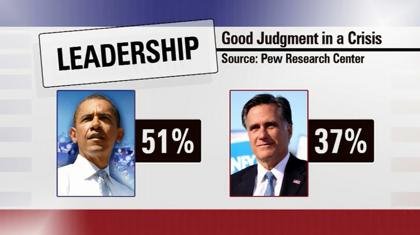
Full Episode: April 22, 2011
With gas prices on the rise, an S&P report lowering America's credit outlook, continuing debate over the deficit and a stalemate in Libya, President Obama's approval numbers have declined just at the moment he launched his reelection campaign. Joining Gwen tonight: David Wessel/Wall Street Journal; Coral Davenport/National Journal; Dan Balz/Washington Post and Martha Raddatz/ABC News.


Full Episode: May 6, 2011
After U.S. forces kill Osama bin Laden, America rejoices but the war on terror continues. The panel looks at the intelligence that led to bin Laden, the political and national security impact, and the strained US-Pakistan relationship. Joining guest host, Gloria Borger: James Kitfield, National Journal, Tom Gjelten, NPR, Peter Baker, New York Times, and Charles Babington, AP.


Full Episode: May 13, 2011
The impact of Osama bin Laden's death continues to ripple, straining the U.S.'s relationship with Pakistan. After a bump in the polls, Obama returns to domestic policy while the GOP presidential field adds a few more candidates. Joining Gwen: David Sanger, New York Times; Nancy Youssef, McClatchy Newspapers; John Dickerson, Slate/CBS News; Dan Balz, Washington Post.

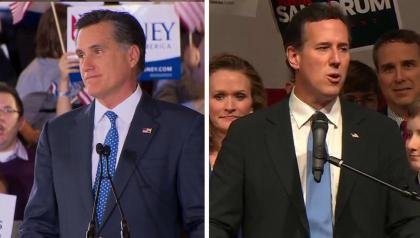
Full Episode: May 20, 2011
After infighting between New Gingrich and fellow republicans, the panel examines the current field of GOP candidates. Also, the table reports on campaign fundraising efforts, the scandal rocking the IMF, and the President's clash with Israel's PM on the path to peace in the Mideast. Joining Gwen: Jeanne Cummings/POLITICO, Michael Duffy/TIME, Doyle McManus/Los Angeles Times, Eamon Javers/CNBC.

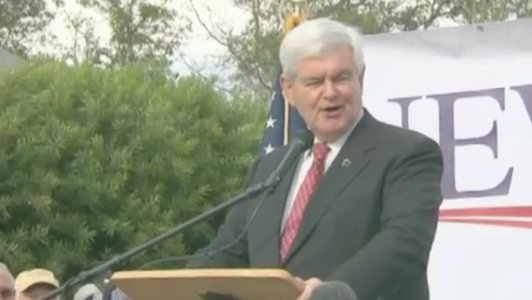
Full Episode: June 10, 2011
As his top staff resigns, Newt Gingrich's presidential ambitions seem to falter while Democrats distance themselves from Rep. Anthony Weiner after he confessed to sexually explicit online activity. Also, a report on the future of Afghanistan as U.S. troops get set to withdraw. Joining Gwen: James Kitfield, National Journal; John Dickerson, Slate/CBS News; and Karen Tumulty, Washington Post.


Full Episode: June 17, 2011
Analysis of the 2nd GOP Presidential debate, and a new fact check feature 'Just the Facts.' Plus, details of VP Biden's negotiations on raising the debt ceiling. Also, the Pentagon and Defense Dept post-Robert Gates & controversy over the US involvement in Libya. Joining Gwen: Michael Duffy, Time; Nancy Youssef, McClatchy Newspapers; Dan Balz, Washington Post; and Jim Barnes, National Journal.


Full Episode: June 24, 2011
President Obama's announcement to begin drawing down U.S. troops from Afghanistan and what it means; the impact on class action suits because of the Supreme Court's Wal-Mart decision; and the latest on the growing GOP presidential field. Joining Gwen: Martha Raddatz, ABC News; Doyle McManus, Los Angeles Times; Nia-Malika Henderson, Washington Post; and Pete Williams, NBC News.

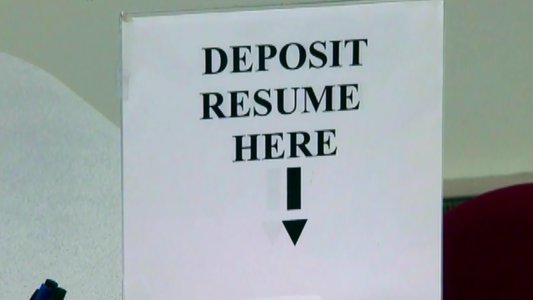
Full Episode: July 8, 2011
Discouraging June unemployment numbers help to frame the contentious debt ceiling negotiations. A look at GOP presidential hopefuls and their fundraising, and the White House changes course on acknowledging suicides in the military.


Full Episode: July 15, 2011
President Obama predicts economic "Armageddon" if the debt ceiling isn't raised by the Aug 2 deadline. Democrats want tax hikes. Republicans want spending cuts. Gwen Ifill drills down on the facts & fiction surrounding the budget crisis with Michael Duffy, TIME Magazine; Gloria Borger, CNN; John Dickerson, Slate Magazine/CBS News; David Wessel, The Wall Street Journal.


Full Episode: July 29, 2011
Lawmakers prepare to work through the weekend to reach a debt deal and avoid a U.S. default. What will it take to break the stalemate and how would a default impact Americans? Plus, how Obama, Boehner, and Reid have played it so far. Joining Gwen Ifill: Major Garrett, National Journal; Jeanne Cummings, Bloomberg News; David Wessel, The Wall Street Journal; and Karen Tumulty, The Washington Post.


Full Episode: August 5, 2011
The economy is the worst it's been in years. Why and how did we get to this point? Also, with all the infighting in Washington these past 3-months, how did the debt deal come together and how will it effect the 2012 elections? Also, voter confidence and its impact on the polls. With Michael Duffy, Time; Deborah Solomon, The Wall Street Journal; and Charles Babington, Associated Press.


Full Episode: August 12, 2011
Gwen Ifill reports from Iowa on the 2nd Republican primary debate and the Ames Straw Poll. Joined by Dan Balz, The Washington Post, they look at the testy exchanges on the debate stage. Plus, in the Washington Week studio, Judy Woodruff examines the White House's response to recent troublesome economic news with John Harwood of CNBC/The New York Times and Jackie Calmes, The New York Times.


Full Episode: September 16, 2011
President Obama took his jobs plan straight to voters this week amidst a bounty of bad news including a jump in unemployment benefit applications, and a spike in the number of people living in poverty. And analysis of the Tea Party debate. Joining Gwen Ifill: John Dickerson of Slate/CBS News, Beth Reinhard of National Journal, Charles Babington of AP, Michael Fletcher of The Washington Post.

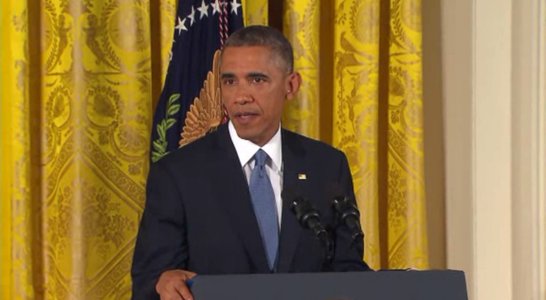
Full Episode: September 23, 2011
President Obama unveils his deficit reduction plan, with new taxes and spending cuts. Plus, Congress argues over disaster relief and a possible government shutdown. Also, Palestinians appeal for full membership at the UN. And the GOP presidential candidates debate.

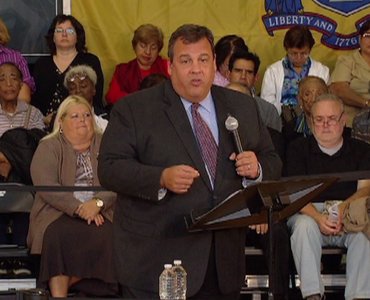
Full Episode: September 30, 2011
Airstrikes killed Anwar al-Awlaki, a U.S.-born Al-Qaeda leader in Yemen. At home, dissatisfied GOP voters want Gov. Chris Christie to join the presidential race. Also, President Obama feuds with his base. Plus, a stopgap bill temporarily prevents a government shutdown. Joining Gwen: John Dickerson, Slate/CBS News; Sam Youngman, The Hill; Major Garrett, National Journal; Pierre Thomas, ABC News.

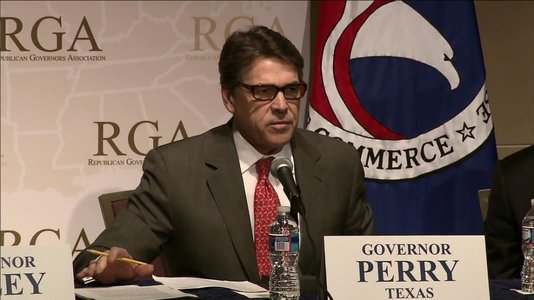
Full Episode: October 14, 2011
As the GOP candidates debate economics, President Obama promotes his jobs plan. But with its defeat in the Senate, what's next? Also, the strange story of an assassination plot against a Saudi Ambassador involving Iran and a Mexican drug cartel. Joining Gwen: Karen Tumulty, Washington Post; Michael Duffy, TIME; Alexis Simendinger, RealClearPolitics; James Kitfield, National Journal.

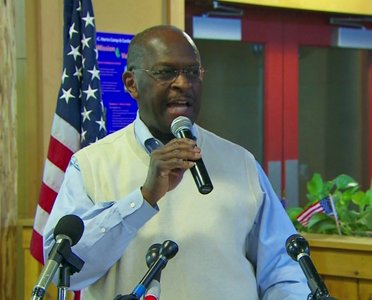
Full Episode: October 28, 2011
A long shot a short time ago, Herman Cain is shaking up the GOP race. But rising polls numbers brings greater scrutiny. And what happened to Rick Perry's surge? Also, the President tries to bypass Congress. Plus the clock is ticking on the Deficit Reduction Committee. Joining Gwen: John Dickerson, Slate/CBS News; John Harwood, CNBC/NY Times; Jackie Calmes, NY Times; Janet Hook, Wall St. Journal.


Full Episode: November 4, 2011
Alleged harassment scandals continue to dog Republican presidential frontrunner Herman Cain, as the other GOP candidates consider how to handle the controversy. Plus a discussion on the global economy, Greece, the G20 meetings, and new U.S. job numbers. Joining Gwen: John Harris, Politico; Chuck Babington, Associated Press; Alexis Simendinger, RealClearPolitics; Jim Tankersley, National Journal.

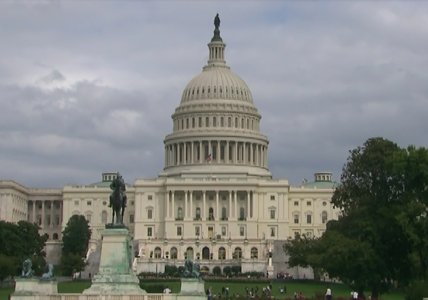
Full Episode: November 18, 2011
As the GOP candidates debated foreign policy, President Obama met with Asia-Pacific leaders. Newt Gingrich's bumpy climb in the polls. And, what happens if the Super Committee fails to deliver? Plus, SCOTUS to decide constitutionality of health reform. Joining Gwen: Major Garrett, National Journal; Jeanne Cummings, Bloomberg News; Lori Montgomery, The Washington Post; Joan Biskupic, USA TODAY.


Full Episode: December 23, 2011
This week, we look back at 2011 and forward to 2012. We'll analyze battles between Congress and the President, the economy, the killing of Osama bin Laden, the pullout of US troops in Iraq while fighting continues in Afghanistan, and more. Joining Gwen: Helene Cooper, New York Times; Michael Duffy, Time Magazine; Doyle McManus, Los Angeles Times; David Wessel, Wall Street Journal.

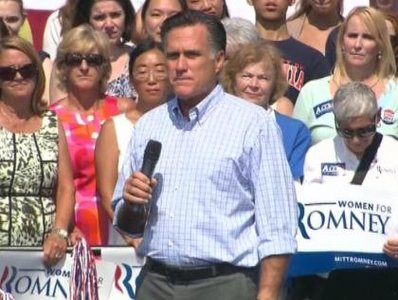
Full Episode: December 30, 2011
Four days before the Iowa Caucuses, Mitt Romney and Ron Paul lead, but Rick Santorum may surprise come voting day. Plus, how will Congressional retirements affect Democrats' efforts to retain control of the Senate in 2012? Joining Gwen from Iowa: Karen Tumulty, The Washington Post; Jeff Zeleny, The New York Times. Around the table: Christina Bellatoni, CQ Roll Call; Susan Davis, USA Today.

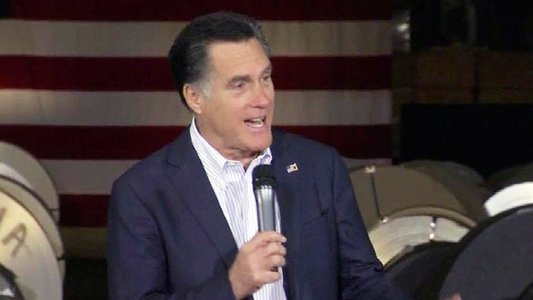
Full Episode: Januuary 6, 2012
This week, we're on the ground in Manchester, New Hampshire to preview the primaries. After a close finish in Iowa, will Mitt Romney stay ahead of the pack in the Granite State? Joining Gwen: Dan Balz, Washington Post; John Dickerson, Slate Magazine and CBS News; Julianna Goldman, Bloomberg News; John Harwood, CNBC and The New York Times.


Full Episode: January 13, 2012
Will Mitt Romney's momentum from successive wins in Iowa and New Hampshire help him win South Carolina? Plus, the Supreme Court will decide on the FCC's authority to regulate the airwaves, and President Obama's aims to shrink government. Joining Gwen: Beth Reinhard, National Journal; Jeanne Cummings, Bloomberg News; Alexis Simendinger, RealClearPolitics.com; Pete Williams, NBC News.

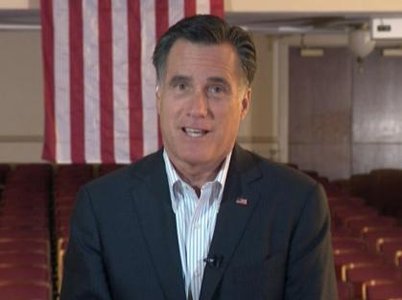
Full Episode: January 27, 2012
Ahead of next week's Florida Republican primary, the 4 remaining candidates squared off on the ground and in two debates. Plus, following his State of the Union Address, President Obama hit the road to push his economic and jobs plan. Joining Gwen: Dan Balz, The Washington Post; John Dickerson, Slate Magazine & CBS News; Jackie Calmes, The New York Times; David Wessel, The Wall Street Journal.


Full Episode: February 3, 2012
What do January's unemployment numbers tell us about the economy? Plus, Mitt Romney won the Florida primary, but his comments about the poor are making headlines. Also, new FEC disclosures shine light on Super PAC money. Joining Gwen: Karen Tumulty, Washington Post; John Harwood, CNBC and New York Times; Doyle McManus, Los Angeles Times; Jim Tankersley, National Journal.


Full Episode: February 17, 2012
As the GOP presidential primary race between Rick Santorum and Mitt Romney tightens, the panel previews the Arizona and Michigan primaries. Plus, President Barack Obama's proposed budget, a deal to extend payroll tax cuts, and tensions over Iran's nuclear program. Joining Gwen: Karen Tumulty, Washington Post; Jackie Calmes, New York Times; Susan Davis, USA Today; Martha Raddatz, ABC News.

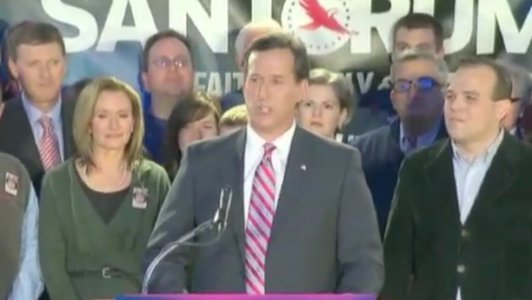
Full Episode: February 24, 2012
Rick Santorum is the main target in the GOP race as 13 states prepare to vote between now and Super Tuesday. Plus, international leaders meet in Tunisia to prevent more bloodshed in Syria. And unrest continues in Afghanistan after the burning of Qurans. Joining Gwen: Michael Duffy, TIME Magazine; Jeanne Cummings, Bloomberg News; Nancy Youssef, McClatchy; Yochi Dreazen, National Journal.

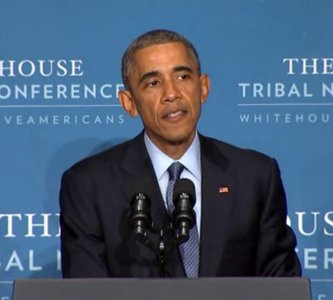
Full Episode: March 2, 2012
As we head into Super Tuesday, which GOP candidate has momentum and how will Tuesday's primaries change the race? Meanwhile, President Obama makes campaign-like speeches in Michigan and New York. Also, Senator Olympia Snow resigns, saying there is no longer bipartisanship in Congress. Joining Gwen: John Dickerson, Slate/CBS News; Gloria Borger, CNN; Charles Babington, Associated Press.

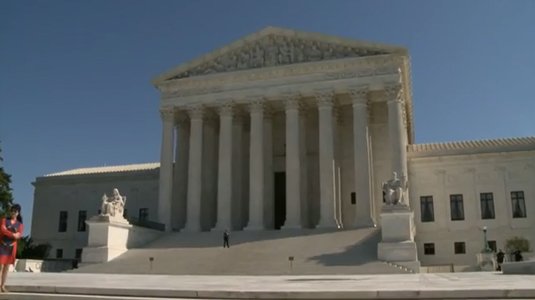
Full Episode: March 30, 2012
The Supreme Court heard three days of arguments on the 2010 Affordable Care Act. What were the key issues before the court? Plus, a mic catches a private comment between President Obama and Russian President Medvedev. Also, Mitt Romney's latest endorsements and the GOP race. Joining Gwen: Joan Biskupic, Reuters; Pete Williams, NBC News; Jeff Zeleny, New York Times; Julianna Goldman, Bloomberg News

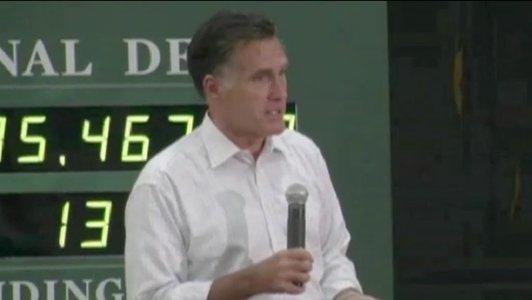
Full Episode: April 6, 2012
After three big wins Mitt Romney has scored more than half of the delegates needed for the GOP presidential nomination. Plus, new unemployment numbers shed light on the economy. Also, female voters, the President's Supreme Court remarks and more. Joining Gwen: John Dickerson, Slate Magazine/CBS News; Karen Tumulty, Washington Post; Jackie Calmes, New York Times; David Wessel, Wall Street Journal.

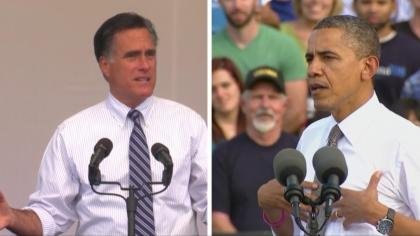
Full Episode: April 27, 2012
As the campaigns look ahead, Mitt Romney targets Barack Obama, but he is targeting youth voters. The Supreme Court hears arguments on Arizona immigration law. Also, a year after Osama bin Laden's death, balancing terrorism and civil liberties. Joining Gwen: John Dickerson, Slate Magazine/CBS News; Alexis Simendinger, RealClearPolitics; Pete Williams, NBC News; James Kitfield, National Journal.

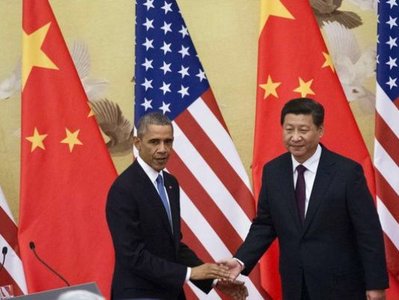
Full Episode: May 4, 2012
The U.S. and China continue to negotiate over activist Chen Guangcheng's travel to America. Plus, President Obama visited Afghanistan on the one year anniversary of Osama bin Laden's death. Also, new unemployment numbers and the 2012 presidential race. Joining Gwen: Martha Raddatz, ABC News; Peter Baker, New York Times; David Wessel, Wall Street Journal; Charles Babington, Associated Press.


Full Episode: May 11, 2012
What's the political fallout of President Obama's support for same-sex marriage? Plus, longtime Senator Richard Lugar, R-Ind., lost his party's primary. What does that mean for moderate republicans and incumbents? Also, the double-agent al-Qaeda plotter. Joining Gwen: Major Garrett, National Journal; John Dickerson, Slate Magazine & CBS News; Susan Davis, USA Today; Pierre Thomas, ABC News.


Full Episode: June 1, 2012
What do disappointing job numbers mean for the already unemployed and the state of economic recovery? Mitt Romney wins enough delegates to make him the unofficial Republican nominee and finds himself in a dead heat with President Obama in three key swing states. Plus the latest on the crisis in Syria.

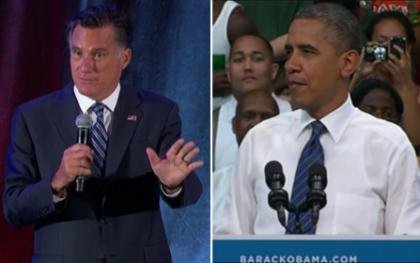
Full Episode: June 22, 2012
Mitt Romney and President Obama court Latino voters as immigration politics enters the spotlight. Plus, Obama invokes executive privilege as Attorney General Eric Holder faces a contempt of Congress charge. Also, what’s Europe’s economic future? This Week: Jeff Zeleny, New York Times; Laura Meckler, Wall Street Journal; Major Garrett, National Journal; Doyle McManus, Los Angeles Times.

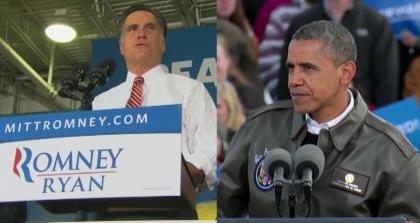
Full Episode: July 6, 2012
President Barack Obama campaigns in Ohio and Pennsylvania and accuses Romney of outsourcing jobs during his time at Bain Capital. Meanwhile, Mitt Romney says that the federal health care mandate is indeed a tax. Plus, new unemployment numbers. Joining Gwen: Dan Balz, The Washington Post; Jan Crawford, CBS News; Charles Babington, Associated Press; Amy Walter, ABC News.


Full Episode: July 13, 2012
This Week, President Barack Obama and Mitt Romney both campaigned in battleground states. Obama called for an extension of middle class tax cuts while Romney addressed the NAACP. Also, House Republicans voted to repeal the president's health care law. Joining Gwen: Michael Duffy, TIME Magazine; Lori Montgomery, The Washington Post; Alexis Simendinger, RealClearPolitics; Sam Youngman, Reuters.


Full Episode: July 20, 2012
A horrific mass shooting at a movie theatre near Denver, Colorado. The campaigns talk about tax history and economic policy as attack ads from both campaigns intensify. And the fighting in Syria spreads to Damascus as the rebels achieve new victories. Joining Gwen: Pierre Thomas, ABC News; Karen Tumulty, The Washington Post; Jeff Zeleny, The New York Times; Doyle McManus, Los Angeles Times.

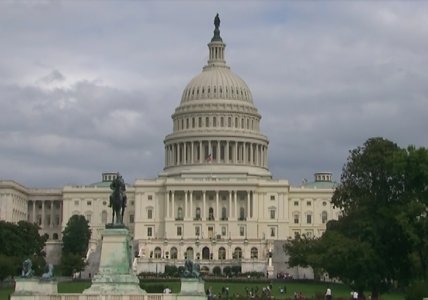
Full Episode: August 3, 2012
Mitt Romney and President Obama rally undecided voters in battleground states. The Tea Party scores a big victory in Texas with Senate nominee Ted Cruz. Plus July jobs numbers and Congress starts its summer recess with key legislation left undone. Joining Gwen: Amy Walter, ABC News; Karen Tumulty, The Washington Post; David Wessel, The Wall Street Journal; Susan Davis, USA Today.


Full Episode: August 10, 2012
New polls show that the presidential race is as close as ever. Mitt Romney and President Barack Obama campaign in key swing states as the campaigns and super PACs release more controversial advertisements. Also, when will Romney pick his running mate? Joining Gwen: Jeff Zeleny, The New York Times; Beth Reinhard, National Journal; John Harwood, CNBC and The New York Times.


Full Episode: August 17, 2012
Mitt Romney’s campaign received a jolt after announcing his running mate, Rep. Paul Ryan. Both campaigns came out swinging with new attacks ranging from policy to personal. Will Paul Ryan’s addition to the campaign change the direction of election? Joining Gwen: Jackie Calmes, The New York Times; Alexis Simendinger, RealClearPolitics; John Harris, POLITICO.


Full Episode: August 24, 2012
A Special Washington Week from St. Petersburg, Florida ahead of the Republican National Convention. How did the Mitt Romney campaign attempt to remain on-topic amidst the Todd Akin debacle? Why are the candidates sparring over Medicare again? Joining Gwen: Dan Balz, Washington Post; Beth Reinhard, National Journal; John Dickerson, Slate and CBS News; Amy Walter of ABC News.


Full Episode: August 31, 2012
Special Washington Week from Charlotte, North Carolina: Did Mitt Romney fulfill expectations at Republican National Convention? Plus what affect did Clint Eastwood's unscripted speech have? Also, we preview the Democratic National Convention. Joining Gwen: Jeff Zeleny, New York Times; Karen Tumulty, Washington Post; Alexis Simendinger, Real Clear Politics; John Hardwood of CNBC / New York Times.

© 1996 - 2026 WETA. All Rights Reserved.
PBS is a 501(c)(3) not-for-profit organization
